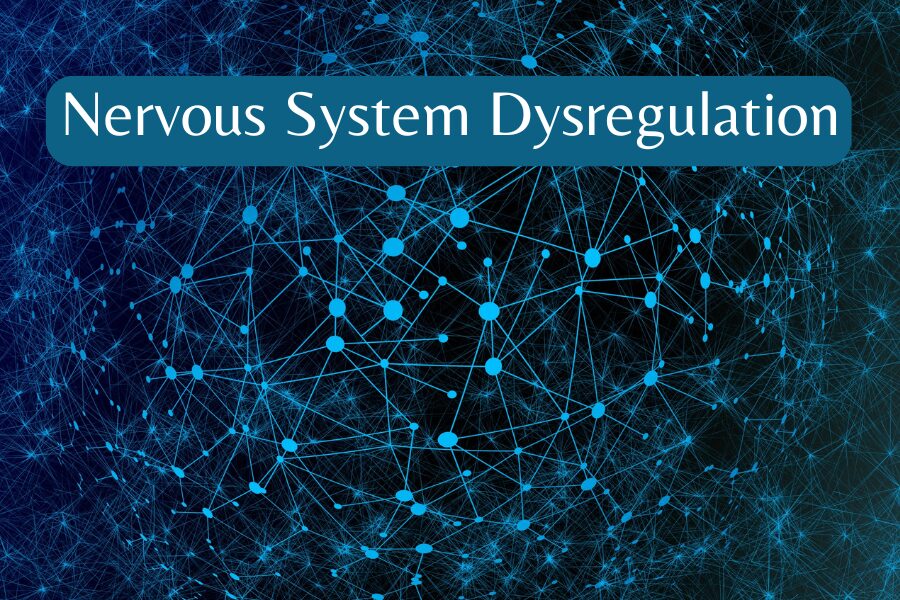If you’ve ever thought, “Why can’t I just let this go like other people do?”, the answer may not be about resilience or mindset — it may be about your biology.
Science now confirms: the female stress response is fundamentally different from the male one.
And yet, most stress tools, productivity models, and burnout advice are still based on male neurobiology.
This disconnect leads to:
- Misdiagnosing high-achieving women as “too emotional”
- Ignoring hormonal fluctuations that amplify stress
- Normalizing chronic overextension — until the body says no
Let’s explore what’s really going on.
How Women’s Brains Process Stress Differently
One of the most striking differences between men and women lies in how their brains activate under stress.
Male Stress Response:
- Activates “fight or flight” survival networks
- Tends to isolate, compartmentalize, or shut down
- Can often “switch off” emotional responses quickly
Female Stress Response:
- Activates multiple regions at once — especially those related to empathy, emotion, and memory
- Tends to stay engaged even after the stressor is gone
- Often processes stress through connection, scanning for relational safety
This means women:
- Feel stress more deeply and for longer
- Are more likely to replay events or worry after the fact
- Internalize tension in the body (gut, chest, jaw, sleep cycles)
This isn’t a flaw.
It’s an evolutionary feature: women are wired for caretaking, scanning for danger, and holding the emotional well-being of the group.
The problem is when we’re expected to do this without regulation or support.
How Hormones Influence the Female Stress Response
Hormonal fluctuations aren’t just about moods — they directly impact how women process and recover from stress.
During the menstrual cycle:
- Estrogen increases emotional sensitivity and cortisol reactivity
- Progesterone affects sleep, anxiety levels, and inflammation
- Low hormone phases (pre-menstrual or postpartum) often mean lower emotional resilience
Chronic stress interacts with this cycle by:
- Amplifying sleep issues
- Creating digestive dysfunction or chronic inflammation
- Triggering emotional volatility
- Making nervous system recovery more complex
Most work cultures ignore this — expecting linear, masculine-style productivity. But female biology is cyclical, and ignoring that leads to dysregulation.
Why High-Achieving Women Burn Out Faster
Many of the women I work with don’t “look” burnt out.
They’re successful, productive, even praised.
But under the surface, they often describe:
- Feeling emotionally raw or numb
- Always “on” and unable to relax
- Headaches, gut issues, insomnia
- A deep exhaustion they can’t explain
This is called high-functioning burnout.
It comes from:
✔ A naturally more reactive nervous system
✔ Social pressure to care for others and hide emotional needs
✔ Constant output with no recovery space
✔ Living in environments that don’t reflect how female bodies actually operate
It’s not weakness — it’s a misalignment between biological reality and external expectations.

How to Support Your Nervous System Based on Your Female Biology
The solution isn’t to suppress your stress. It’s to regulate it differently — with tools that match your lived experience.
Here’s what works:
1. Nervous System Literacy
Know your body’s language before trying to change it.
We often think of stress as just a mental reaction — worry, overwhelm, overthinking. But your nervous system tells the story first, through physical and emotional signals.
Building nervous system literacy means:
- Learning your early warning signs (jaw clenching, shallow breath, mind racing, emotional flooding)
- Recognizing which state you’re in: fight, flight, freeze, or fawn
- Understanding your default coping style: overfunctioning, people-pleasing, perfectionism, or shutdown
When you know how your body communicates, you can stop misinterpreting your reaction as weakness — and start responding with compassion and strategy.
💡 Think of it as learning your own internal weather forecast. You don’t control the storm, but you can dress accordingly.
2. Cyclical Awareness
Your stress capacity changes across the month — and that’s not a flaw.
The female hormonal cycle affects:
- Energy and productivity
- Emotional regulation
- Sleep and inflammation
- Cognitive clarity and decision-making
Here’s a simplified breakdown:
- 🩸 Menstruation (Days 1–6): Low hormones = need for rest and reduced stimulation
- 🌱 Follicular Phase (Days 7–13): Energy rises, nervous system tolerates more stress and challenge
- 🌕 Ovulation (Days 14–16): Highest estrogen = social, confident, but more emotionally sensitive
- 🍂 Luteal Phase (Days 17–28): Increased sensitivity to stress, need for gentler routines and stronger boundaries
If you ignore these shifts and expect linear performance (as male-based models do), you risk chronic dysregulation.
But when you plan around your rhythm, you experience more clarity, flow, and recovery.
💡 Your cycle is not an obstacle — it’s your built-in stress compass.
3. Gentle Regulation Tools
Not all nervous systems regulate the same way — find your match.
Generic advice like “just breathe” or “do yoga” misses the complexity of the female stress response.
Women need personalized, nervous system-specific tools. Here’s how to think about it:
If you’re in “fight or flight” mode:
- You may need movement-based discharge like shaking, dancing, or walking with intention
- Your system needs to feel like it’s “completing” the stress cycle
If you’re in “freeze” or “shutdown” mode:
- You may benefit from gentle reactivation: humming, tapping, warm compression, or rocking
- Your system needs safety before stimulation — fast tools may feel threatening
If you’re a “fawner” (people-pleaser, overadapter):
- You may need voice-based tools: journaling, safe expression, co-regulation with someone you trust
- Your system regulates through relational safety, not isolation
The goal is to regulate through your body, not force it to behave differently.
💡 Regulation is like tuning an instrument. You don’t play louder — you tune deeper.
4. Boundaries That Restore
Boundaries aren’t selfish — they’re nervous system medicine.
Many high-achieving, sensitive women are chronically dysregulated not because they lack strength — but because they lack protection.
We absorb:
- Other people’s emotions
- Expectations at work or home
- Energetic leaks from constant access (emails, messages, tasks)
Setting nervous-system-aligned boundaries means:
- Learning to say “no” or “not now” without guilt
- Reducing emotional labor (i.e., always being the one who listens, organizes, remembers)
- Structuring your calendar to allow recovery time, not just output
- Protecting your sensory bandwidth (notifications, overstimulation, noise)
Boundaries create the space your system needs to reset. Without them, even the best regulation tools won’t stick.
💡 Think of boundaries as the insulation your system needs to hold calm.
Ready to Understand Your Female Stress Response?
There’s no one-size-fits-all.
Your stress response is shaped by your biology, your past experiences, and your current reality.
In a free 45-minute session, I’ll help you:
- Map out a personalized regulation plan — based on science, not trends
- Identify your unique stress patterns
- Understand how your hormones and nervous system interact
Book your complementary session: https://bit.ly/47QTFyj
Because stress is not only a mindset issue.
It’s a body issue.
And your body deserves to feel safe again.
To your Well-being
By Marta Raga, Executive & Life Coach Specializing in Stress Management









0 Comments